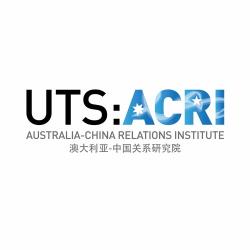Australia faces an international environment unlike any it has faced since becoming an independent foreign policy player in the 1940s. The economic and political rise of China, uncertainty about US leadership and power, and concerns regarding the sustainability of existing institutions have resulted in a sense of anxiety.
Have Australia’s responses to the changing world order been effective? Is it possible for these changes to be turned into opportunities? What are the dominant discourses on Australia’s foreign policy orientation?
Nick Bisley, head of Humanities and Social Sciences and Professor of International Relations at La Trobe University, joins Simone van Nieuwenhuizen, researcher at the Australia-China Relations Institute (ACRI) at the University of Technology Sydney to discuss how Australian policymakers and scholars are responding to the changing world order.
Guest: Nick Bisley, Head of Humanities and Social Sciences and Professor of International Relations, La Trobe University
Host: Simone van Nieuwenhuizen, Project and Research Officer, Australia-China Relations Institute, University of Technology Sydney
Australia faces an international environment unlike any it has faced since becoming an independent foreign policy player in the 1940s. The economic and political rise of China, uncertainty about US leadership and power, and concerns regarding the sustainability of existing institutions have resulted in a sense of anxiety.
Have Australia’s responses to the changing world order been effective? Is it possible for these changes to be turned into opportunities? What are the dominant discourses on Australia’s foreign policy orientation?
Nick Bisley joins Simone van Nieuwenhuizen to discuss how Australian policymakers and scholars are responding to the changing world order.
It’s natural for Australia to feel unsettled by the rise of China, due to the sheer size and scale of its economic and political importance. Australia’s anxieties, however, are not only about China. Australia faces questions of American power and the purpose of US leadership, which have been exacerbated by the election of President Donald Trump. Furthermore, there is uncertainty around the legitimacy and performance of the institutions underpinning the post-WWII world order, and the values they embody.
Although these dynamics have been evident for the last 10 years, Australia’s foreign policy has not changed significantly. The US alliance remains the centrepiece of Australia’s strategic and defence policy. There have, however, been some shifts, including an increase in military spending; the development of new security-focused partnerships with like-minded countries such as India and Japan; and the use of the terms ‘rules-based order’ and ‘Indo-Pacific’ to signal Australia’s views about the world order and its place within it.
Great power rivalry has returned in the region. This can be viewed as either a threat or opportunity. Middle powers such as Australia can take advantage of these geopolitical circumstances by putting themselves in a position to manoeuvre relationships with various powers. Australia’s alliance relationship with the US, however, constrains its policy options, as Australia is not seen as a credible ‘swing voter’ in international relations.
The dominant view in Canberra is that the current order can be protected and sustained in light of these changes, and that that it is in China’s best interests to buy into the existing order. However, China’s interests and the interests of other powers often diverge from Australia’s, and the order is therefore unsustainable in its current form. Nevertheless, shared interests between Australia and China far outweigh their differences; in focusing on the conservation of the existing order, Australia misses the opportunity to build a consensus with China about an evolving world order.
There are four main ‘camps’ in the debate around Australian foreign policy orientation: liberal optimists; liberal pessimists; realist optimists and realist pessimists. The Australian government’s current outlook may be described as liberal pessimist. This is reflected in increased defence spending; faith in markets and the global economy; optimism about the continuing role of the US in upholding the rules-based order; and the desire to guard against risks posed by illiberal states.
Theme music by Sam J Mitchell.


